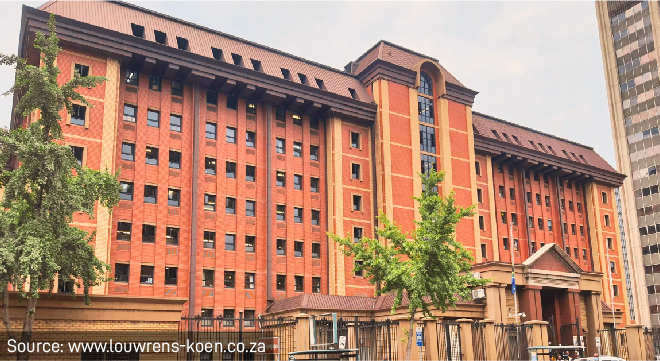An Alberton mom has won a significant court battle against her medical scheme, forcing it to pay for an expensive drug that her three-year-old son needs to treat a rare inherited genetic disorder.
Michaney de Wet’s son, Zachary, was diagnosed with Hunter Syndrome a year ago. She applied twice to Medihelp Medical Scheme to authorise the use of Elaprase, an enzyme replacement therapy, which is the only registered treatment for the condition in South Africa. The medical scheme turned her down on both occasions.
Please note:
- Michaney de Wet has been open about her fight against the medical scheme and her son’s condition, so their names have been used in this article.
- Hunter syndrome is also known as mucopolysaccharidosis type II (MPS II).
In July, her son’s health took a turn for the worse. His specialists noted that there was damage to his heart valves and that his liver was enlarging. De Wet launched an urgent application in the Pretoria High Court.
On Friday, Judge Anthony Millar directed Medihelp to authorise and pay for the treatment. It is an interim order, pending the outcome of a complaint De Wet has made to the Council for Medical Schemes (CMS).
De Wet was supported in her application by Rare Diseases of South Africa, which advocates for the interests of people with rare diseases.
In his ruling, Judge Millar noted that Hunter Syndrome affects only 1 in 100 000 people. It is caused by an enzyme deficiency which, if not treated, results in bodily and organ damage and developmental difficulties.
“It is incurable. However, Elaprase has shown to be an effective treatment that can slow or even halt the progressive degenerative consequences. There is no other treatment available. Zachary’s specialist medical practitioners have motivated it as being an essential part of his treatment,” said Judge Millar.
In its initial refusal, Medihelp gave various reasons, including that the disease was not registered as a prescribed minimum benefit (PMB), and that De Wet’s plan did not cover “chronic medication” or treatment such as Elaprase.
Subsequently, however, the CMS, in considering a complaint against Polmed in a similar matter, ruled that Hunter Syndrome was a PMB condition.
Based on this, De Wet applied once more to Medihelp, but authorisation was again declined.
With Zachary’s condition deteriorating, she could not wait for the adjudication on her case by the CMS because it could take up to two years, she said in her affidavit before the court.
Medihelp opposed the application.
Judge Millar said it conceded, in the light of the Polmed ruling, that Hunter Syndrome was a PMB condition. But in reference to a “nuanced” reading of the Medical Schemes Act and its regulations, it said it was under no obligation to pay for Elaprase because its use was not a “prevailing, predominant public hospital practice”.
It argued that Elaprase was expensive. And that while it may be the prevailing and preferred treatment protocol in the private healthcare sector, the same could not be said for the public healthcare sector.
De Wet, however, put up affidavits from heads of rare disease units at state hospitals to prove its use in several public hospitals, including Charlotte Maxeke and the Red Cross Children’s Hospital.
Medihelp, using terminology in the regulations, then argued that it was not used “prevalently”.
Judge Millar said this was not surprising, given that the condition was so rare.
“What is apparent is that the use of Elaprase is the only available treatment for MPS II in both the public and private sector, that MPS II is a PMB condition and is being prescribed in both private and public hospitals,” the Judge said.
“It is apparent that the deterioration of Zachary’s condition means that if he does not get the treatment, his life and quality of life will be irreparably adversely affected.”
He ruled that pending the outcome of the CMS inquiry, Medihelp must authorise and pay for Zachary to receive all treatment he requires, including Elaprase, within 30 days.
Click here to read the full judgment.
This article was first published by GroundUp and is republished with permission in terms of a Creative Commons Attribution-NoDerivatives 4.0 International Licence.
Comment from Medihelp
Moonstone received the following comment from Medihelp:
“The biggest challenge facing all medical aids is to ensure that patients have access to quality care with good clinical outcomes while ensuring sustainable funding. This often means that schemes have to take difficult decisions such as this one; hence they rely on their rules and funding guidelines to ensure consistence and fair treatment of the collective membership. Although Medihelp has the deepest empathy for Zachary and his family, our decision was made to serve the interest of the collective membership of Medihelp.
“Medihelp is studying the judgment and evaluating the impact it would have on the collective membership before deciding what action is required in the best interest of its members.”



